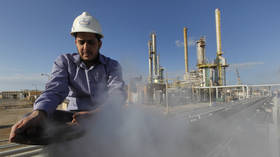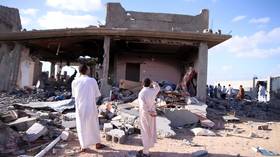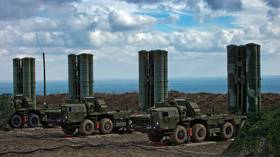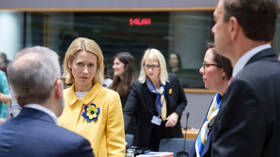Libya oil production halted over central bank power struggle

Libya’s eastern government has vowed to maintain a blockage on oil production and exports until the country’s central bank governor, who has been dismissed by the rival administration in Tripoli, is reinstated.
House of Representatives Speaker Aqila Saleh said the shutdown will help “protect the wealth of the Libyan people from exploitation and theft and to safeguard the nation’s resources,” according to a statement published by local media on Wednesday.
The North African country has been split between two competing administrations since a NATO-backed uprising in 2011 toppled longtime ruler Muammar Gaddafi. The interim Government of National Unity, which was installed as part of a UN-backed process to prepare for elections, is headquartered in Tripoli – the western part of Libya – and the capital. The other administration is based in Benghazi in the east, home to the national parliament, the House of Representatives.
On August 18, the Presidential Council, which is affiliated with Prime Minister Abdul Hamid Dbeibah’s Tripoli-based government, issued a decree removing Seddik al-Kabir. Kabir, who had led the central bank since the country descended into chaos in 2011, was accused of mismanagement. The council appointed Mohamed Abdul Salam al-Shukri, a former deputy governor, as his replacement.
The House of Representatives denounced the move as “unacceptable,” arguing that the appointment of the governor should not be a unilateral decision by the Presidential Council.
The central bank is the sole internationally recognized repository for the African country’s oil revenues and foreign reserves.
On Monday, the authorities in the east, where the majority of Libya’s oilfields are located, announced that all production and exports would be halted.
Libya’s largest oil site, Sarir Field, had almost completely halted its 209,000 barrel per day output due to disruptions at the El Feel, Amal, Nafoora, and Abu Attifel facilities, Reuters reported on Wednesday, citing two oil engineers.
According to the outlet, Libya, a member of the Organization of Petroleum Exporting Countries (OPEC), was producing about 1.18 million barrels of oil per day as of last month.
The dispute over control of the monetary institution comes just days after the bank resumed operations, which had been suspended in response to the abduction of its IT chief from his home in the capital.
The United Nations Support Mission in Libya says it plans to facilitate talks between rival factions to resolve the central bank crisis. The decision was announced on Wednesday after a meeting in Benghazi with Libyan National Army leader Khalifa Haftar.














